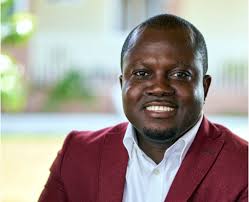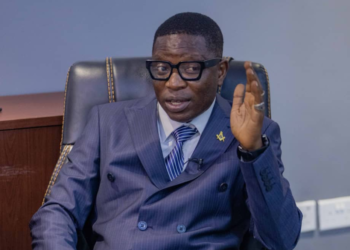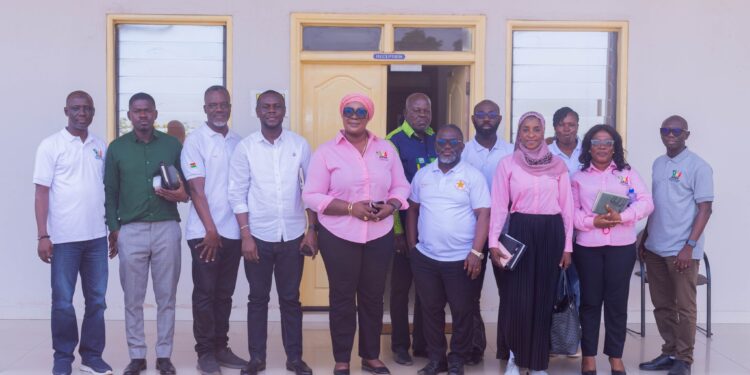Technology consultant Maximus Amertorgoh has questioned the necessity of Ghana’s newly announced SIM re-registration exercise, insisting the government already possesses the data required to verify and authenticate citizens.
According to him, the initiative led by the Ministry of Communications, Digital Technology, and Innovations will only inconvenience Ghanaians, many of whom have already undergone similar procedures.
“When we were registering the Ghana card, I entered my name, date of birth, and all that with my phone numbers, now you tell me to use my numbers to verify my identity again? That was the registration we did”
Maximus Amertorgoh, Technology Consultant
Amertorgoh argued that the government’s database from previous registrations, including the Ghana Card exercise, should form the foundation of any further identity verification.
He maintained that efforts should instead focus on consolidating and processing this existing information to “clean up” national records.
He explained that SIM registration, when done correctly, involves two processes: “verification and authentication.”
The government’s task, he said, should be to match submitted information across various databases such as passports, driver’s licences, and bank records to ensure identity consistency.
“For me, if those designs are considered, then it should be fine but if not and we’ll just go through the same process of, you know, people trying to authenticate their own identity when the government should be doing that then no”
Maximus Amertorgoh, Technology Consultant
Unclear Technology, Added Inconvenience
Amertorgoh also expressed concern about the technical clarity and accessibility of the sim re-registration process.
He noted that the government has yet to adequately explain how the new system would function across different types of devices and in remote areas with poor connectivity.
“Are you going to run the software on a feature phone or a smartphone, or a combination of those two different technologies?”
He added that proposals to integrate face ID and app-based verification could alienate citizens in areas without smartphones or reliable internet access.
These technological gaps, according to him, risk deepening the digital divide and excluding vulnerable populations from essential telecom services.

Addressing Fraud
One of the major justifications for the new SIM registration exercise has been the prevention of mobile-related fraud.
However, Amertorgoh was skeptical that the new system would be effective in tackling the problem.
He pointed to ongoing issues with identity-based scams on platforms such as WhatsApp, where fraudsters impersonate contacts and use registered SIMs to solicit funds.
“How do we cure fraud using a SIM card? It’s not going to be 100%. I’m not sure it’s going to be even 60% because of what the fraudsters do now”
Maximus Amertorgoh, Technology Consultant
He cited cases in which the phone numbers used in scams were registered under legitimate names but were ultimately traced to anonymous mobile apps, making it nearly impossible for victims to identify perpetrators.
Amertorgoh insisted that SIM fraud is a much deeper issue than what re-registration alone can fix.
Smarter Systems
Rather than asking all Ghanaians to repeat a cumbersome process, the consultant believes government systems should be built to perform intelligent data cross-checks in the background.
He used the example of online platforms that conduct seamless verifications using data already provided by users.
“If I send my data to Facebook for verification, they do all the authentication to make sure I’m really Maximus and the information I provided is valid, and then they give me a tick”
Maximus Amertorgoh, Technology Consultant
Amertorgoh explained that Ghana already collects biometric data, such as fingerprints and facial images, which can be processed using backend software to clean up duplicate entries or false identities without public re-engagement.
For him, the government should be using this data more efficiently, rather than forcing citizens through another nationwide effort that fails to tackle the core issues.
“It’s difficult to even wrap your mind around how the technology is going to work. So they should explain the technology better then maybe some of us can appreciate it”
Maximus Amertorgoh, Technology Consultant

Unverified Numbers
While Amertorgoh acknowledged the need for accurate records, he urged authorities to narrow their efforts to only those SIM cards and identities that remain unverified.
“Just focus on the other citizens who have not been verified. I’m sure the telcos can give you an idea as to the numbers that have not been verified and the government should have that database to do the verification of those people.
“Authentication of those people – that is all you need to do”
Maximus Amertorgoh, Technology Consultant
For Amertorgoh, the process will be a complete waste of time and a great inconvenience if it does not provide any solutions to the objections raised.
As the government moves forward with the initiative, questions remain about whether the process and technological tools being proposed are adequate, inclusive, or even necessary in a country where data already exists but has yet to be optimally used.
READ MORE: COCOBOD Debunks False Reports on Cocoa Producer Price Announcement





















